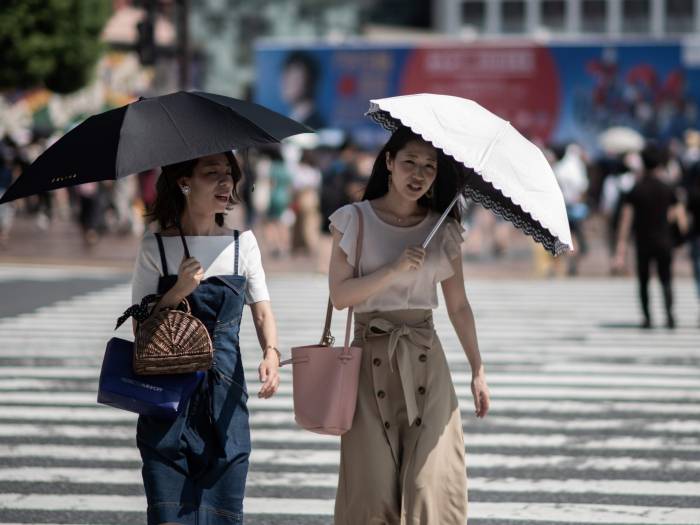In the town of Kumagaya, to the north west of its capital Tokyo, the mercury hit 41.1C - the hottest temperature ever recorded in Japan. Climate data is available for the town from 1896.
Previously the country's highest temperature, 41C, was recorded in August 2013 in the Kochi, according to the Japan Meteorological Agency.
At least 65 people have died since the start of the month as a result of the conditions, now considered a natural disaster and there is little sign of the weather letting up anytime soon.
Tokyo – where the 40C heat was likened to being trapped in a sauna by the city's governor Yuriko Koike, has reported receiving 3,000 emergency calls from distressed citizens in one day over the weekend, another record.
However, flights into Japan are continuing as normal, although passengers are being advised to be prepared for the extreme heat on their arrival, especially the elderly, those with pre-existing heart conditions or asthma and couples with young children.
Local events like the annual Gion Matsuri parade in Kyoto was nonetheless cancelled over the weekend, after the city hit 38C for seven successive days.
It is thought other attractions could also be closed to compensate for the heat and as a result holidaymakers have been advised to double-check in advance that it is going ahead as scheduled.
The weather has also raised international concerns about Japan hosting of the 2020 Summer Olympic Games in Tokyo, where temperatures of this magnitude could cause problems for athletes and spectators alike.
Officials are advising locals to carry water with them at all times, stay out of the sun for long periods of time and keep to the shade as much as possible.
Parasols are recommended, as is delaying journeys to avoid rush hour traffic congestion if at all possible.
Avoiding outdoor exercise and seeking medical attention as soon as the symptoms of heatstroke become apparent are also recommended.
More than 22,000 people have been hospitalised in Japan since the start of July with heat-related conditions.
The Independent
More about: Japan
















































